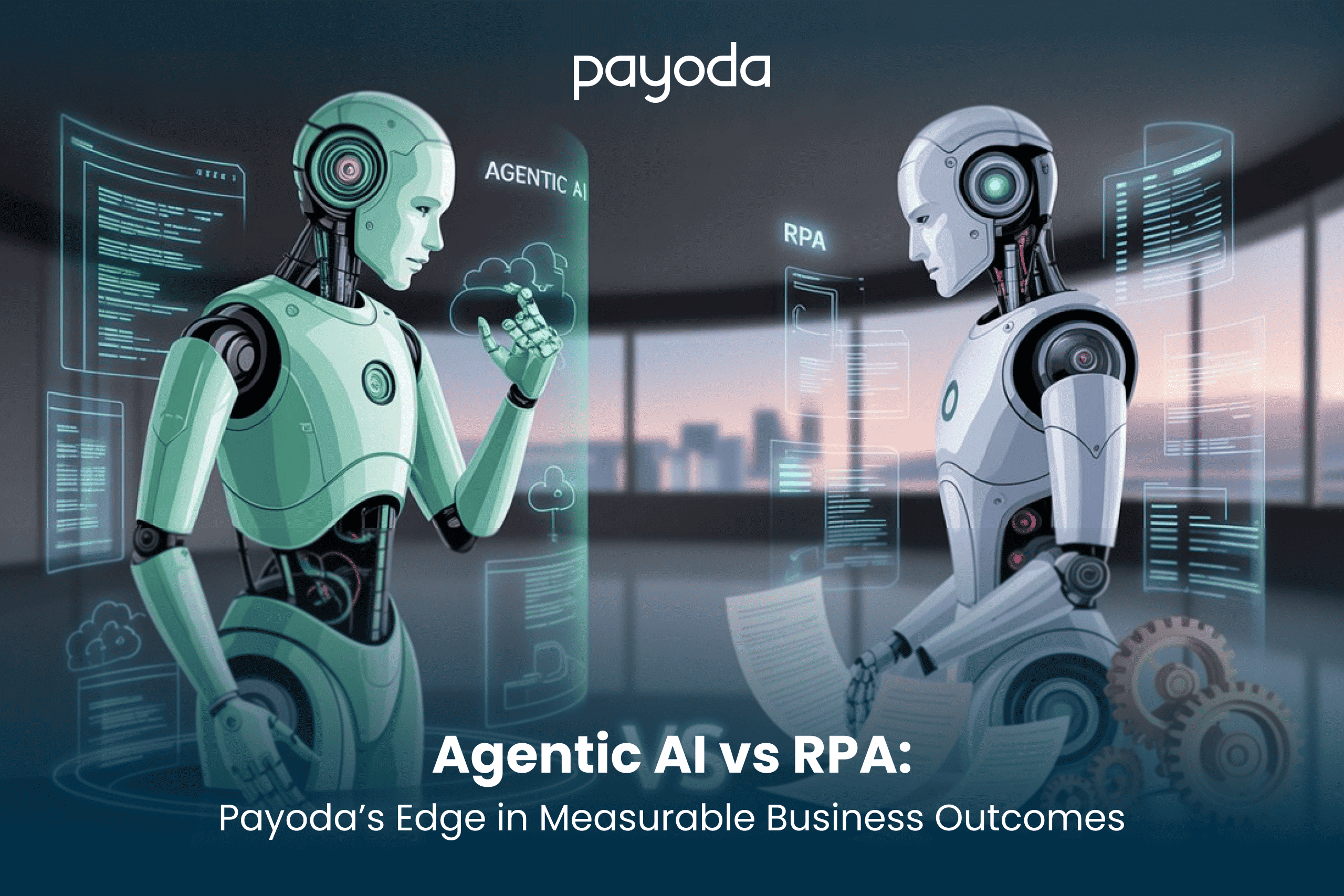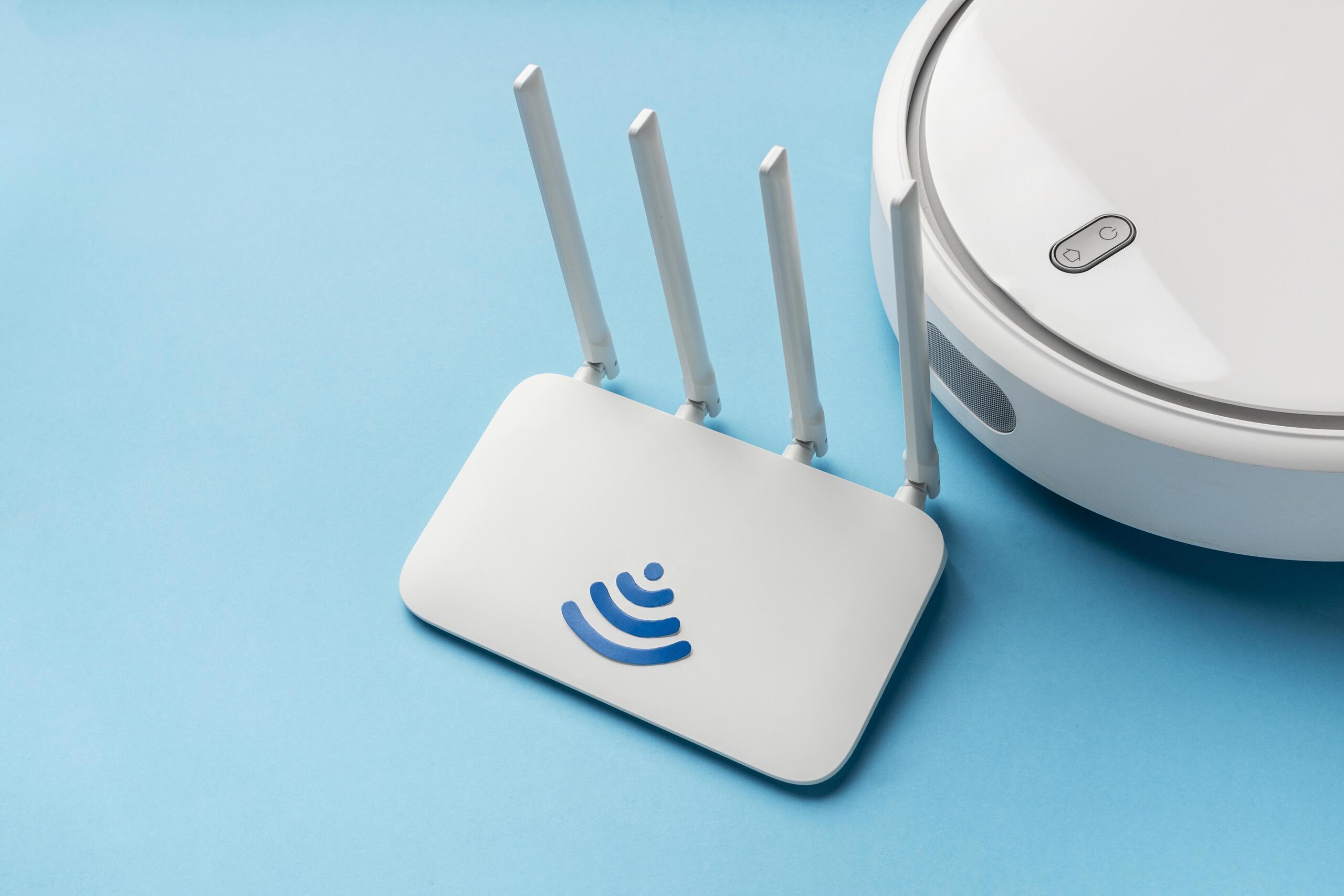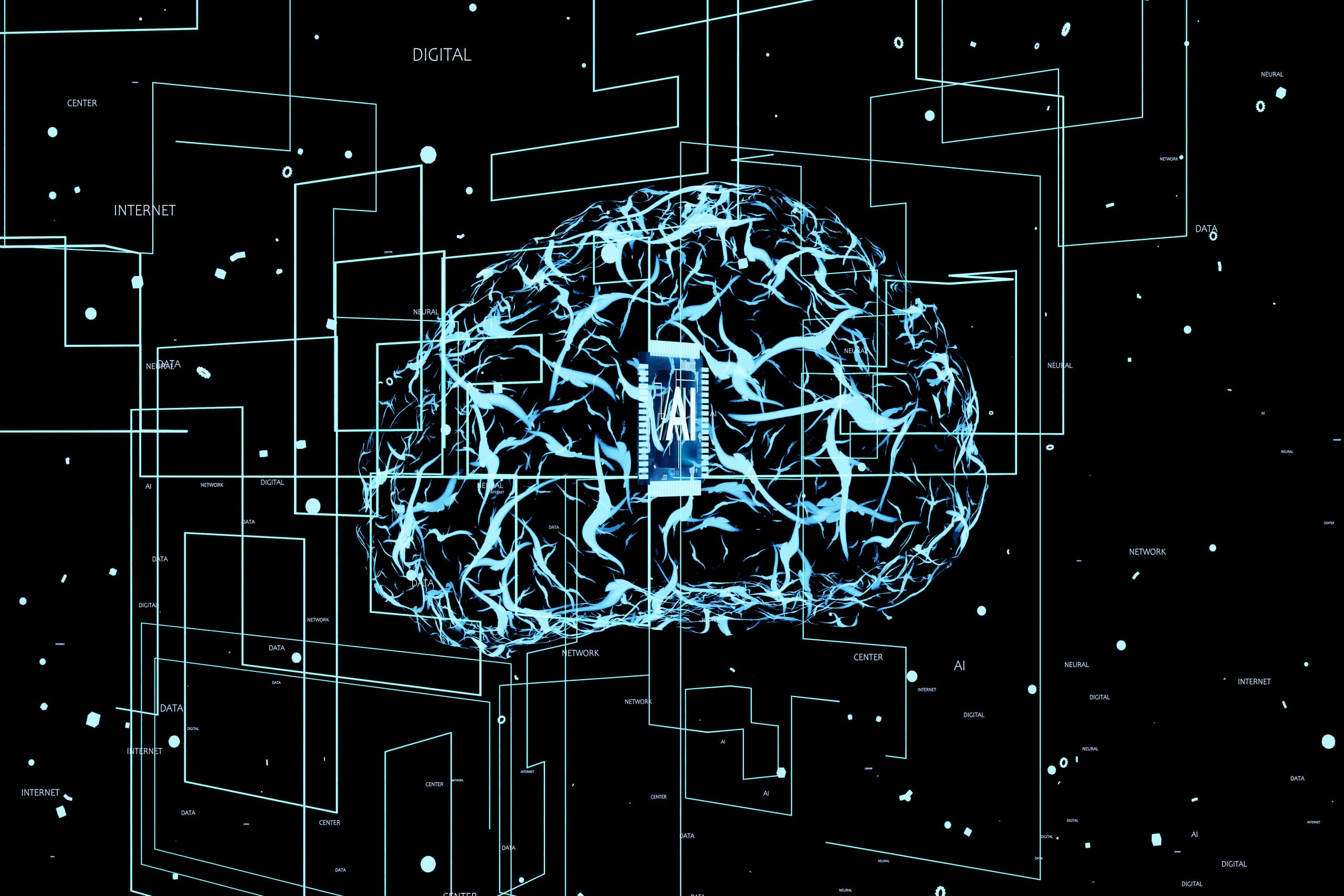
Introduction
Enterprise automation is usually seen through the lens of Robotic Process Automation (RPA). Therefore, for many organizations, RPA has been the first and best step to minimize manual effort and streamline repetitive workflows. However, the business environments have become more complex, and customer expectations have risen. Hence, companies are beginning to realize that simple task automation is no longer sufficient.
Now is where Agentic AI would come into play. When compared to RPA, Agentic AI evolves, reasons, and makes context-aware decisions that do not require any human intervention. The Agentic AI vs RPA debate is far beyond the concept of technology and considers the outcomes too. Modern businesses want an automation system that doesn’t just complete tasks but is also elemental in moving actual business outcomes such as cost savings, better customer experiences, and expedited decision-making.
With Payoda’s Agentic AI capabilities, companies are empowered to transition away from the process automation perspective toward truly intelligent systems that can transform workflows across the entire organization.
What Is RPA and Where Does It Fit?
RPA has been the backbone of the enterprise automation for more than a decade. It is rule-based, structured, and suited for repetitive tasks.
Common examples:
- Automating invoice data entry.
- Processing insurance claims.
- Generating routine reports.
Strengths:
- Speed in handling repetitive workflows.
- Reduction in manual errors.
- Quick ROI for narrow use cases.
Limitations:
- Cannot adapt when rules change.
- Struggles with unstructured or incomplete data.
- High maintenance cost as workflows evolve.
In essence, RPA is reliable but rigid. It was designed for static environments, not the dynamic challenges enterprises face today.
What is Agentic AI and Why Does It Matter?
Agentic AI is an evolution of automation. Unlike RPA, which executes predefined steps, Agentic AI works autonomously, interprets data in context, and adjusts its actions based on outcomes.
Key characteristics:
- Autonomy: Can act without constant human triggers.
- Contextual awareness: Understands business goals, not just instructions.
- Adaptability: Learns from new data and adjusts processes accordingly.
- Collaboration: Works with humans, systems, and other agents.
Agentic AI focuses on measurable business outcomes AI rather than task completion.
Where RPA Is Lacking?
RPA has often been marketed as an enterprise-wide solution; however, its true scope is quite narrow.
- Static by design: Any changes in workflow logic need to be reprogrammed.
- Struggles with complexity: Cannot process unstructured data such as images, emails, or free-text inputs.
- High upkeep: Because rule-based scripts break down so easily, the maintenance cost is recurrent.
- Not future-proof: An RPA application cannot instantly or in real time respond to changes in regulations, the market, or operations.
Being a bridge between an old and a new world, RPA works in between legacy and modern AI businesses, but it lacks the intelligence for long-term AI-driven business transformation.
Agentic AI: Where the Power Lies in Modern Enterprises
For businesses running on legacy systems vs modern AI, RPA works as a bridge but lacks the intelligence needed for long-term transformation. Enterprises prefer Agentic AI today over RPA is because it doesn’t just automate; it orchestrates processes. It improves by learning through experience. Agentic AI scales beyond departments into enterprise-wide intelligence.
Flow of Agentic AI in workflows:
- Data intake: from structured and unstructured sources.
- Context analysis: understanding the purpose of the task.
- Decision-making: choosing the best path forward.
- Execution: acting autonomously to complete tasks.
- Learning loop: refining processes for better future outcomes.
Measurable business outcomes AI enables:
- Predictive insights for faster decisions.
- Cost efficiency by eliminating rework.
- Compliance management without manual intervention.
- Enhanced customer satisfaction through proactive solutions.
Real-World Use Cases: Agentic AI vs RPA
Finance
- RPA: Automates invoice data entry.
- Agentic AI: Detects anomalies, prevents fraud, and predicts compliance risks.
Healthcare
- RPA: Manages appointment scheduling.
- Agentic AI: Anticipates patient care needs, manages resources, and aids diagnostics.
Manufacturing
- RPA: Tracks production and generates reports.
- Agentic AI: Predicts equipment downtime, optimizes supply chains, and ensures quality control with computer vision.
In every sector, Agentic AI expands beyond rule-following to decision-making, enabling measurable outcomes that RPA cannot deliver.
Payoda’s Approach to Agentic AI
While many vendors focus on automation, Payoda prioritizes outcomes.
- Integration with legacy systems: Payoda Agentic AI bridges legacy systems vs modern AI, ensuring enterprises don’t have to abandon existing infrastructure.
- Enterprise automation solutions: Covers finance, HR, IT, operations, and beyond.
- Future-proofing: Builds compliance, security, and adaptability into every workflow.
- Value proposition: With Payoda’s expertise, Agentic AI can be designed not just for automation but for measurable business outcomes AI.
Why Measurable Business Outcomes Are Key
Automation without outcomes is wasted effort. Today’s organizations don’t just want tasks completed, they want tangible improvements.
- Faster turnaround in customer service.
- Lower operational costs with higher agility.
- Proactive fraud detection instead of reactive monitoring.
- Predictive maintenance that saves millions in downtime.
This is where the Agentic AI vs RPA debate is most critical. Agentic AI proves its worth not in how many processes it automates, but in the business outcomes it delivers.
Conclusion:
RPA laid the groundwork for enterprise automation, but its limitations are becoming more evident with today’s dynamic world. Agentic AI has emerged as the smarter, more adaptable solution—capable of delivering measurable business outcomes AI that RPA cannot match. With Payoda in the picture, organizations get more than just automation. They get AI systems that learn, adapt, and scale to deliver value following across the organization. From cost-savings to better decision-making, Payoda ensures that automation is focused on outcomes and not just efficiency.
Hence, the question should not be about the adoption of automation anymore but the kind of automation that will drive technology tomorrow. In the contest of Agentic AI vs RPA, the winner is clear: businesses need intelligent systems designed for outcomes, not just processes.
FAQ's
- How does Agentic AI differ from RPA in delivering enterprise automation solutions?
On one hand, RPA automates rule-based tasks, Agentic AI adapts to dynamic workflows and processes both structured and unstructured data and delivers measurable business outcomes AI such as cost reduction, compliance, and better decision-making.
- Can Agentic AI integrate with legacy systems?
Yes. Unlike traditional automation, Payoda can bridge legacy systems vs modern AI, enabling organizations to modernize workflows without abandoning existing infrastructure.
Talk to our solutions expert today.
Our digital world changes every day, every minute, and every second - stay updated.









